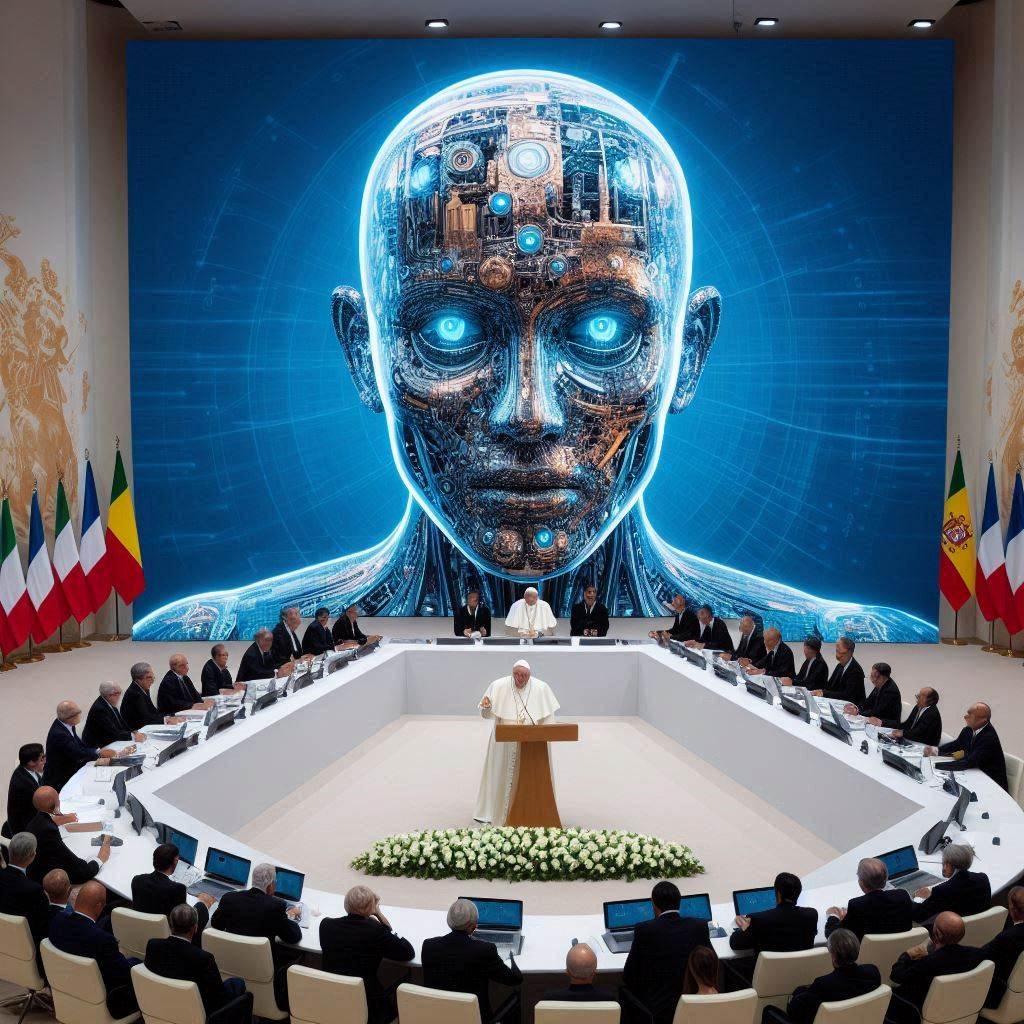
Pope Francis made history on Friday by becoming the first pontiff to address a Group of Seven (G7) summit. Speaking to world leaders, he emphasized the crucial need to ensure that Artificial Intelligence (AI) remains under human control, warning against allowing AI to dominate humanity.
The 87-year-old pope, whose mobility is limited, was warmly received by an array of global leaders as he navigated the room in a wheelchair. Leaders including U.S. President Joe Biden, Canadian Prime Minister Justin Trudeau, and King Abdullah of Jordan warmly greeted him, reflecting the significance of his presence at the summit.
Pope Francis described AI as an "epochal transformation" but underscored the importance of strict oversight to protect human life and dignity. "No machine should ever choose to take the life of a human being," he stated, cautioning against letting powerful algorithms dictate human destiny. He warned that relying on machines for crucial decisions would strip humanity of hope and autonomy.
The G7 summit, hosted by Italian Prime Minister Giorgia Meloni, included leaders from the United States, Germany, Britain, France, Italy, Canada, and Japan. Additionally, representatives from ten other nations, including India, Turkey, and Kenya, were invited to participate in the discussions.
During his address, Pope Francis acknowledged the dual nature of AI. He recognized its potential to inspire and broaden access to knowledge globally but also highlighted the risks it poses, such as deepening the divide between advanced and developing nations and exacerbating social inequalities. He urged political leaders to create conditions that ensure AI's beneficial use.
Earlier this year, Italy passed legislation to regulate AI use and impose sanctions for AI-related crimes. Prime Minister Meloni has repeatedly cautioned about the risks AI poses to the job market. In line with these concerns, the G7 leaders announced plans to develop strategies to anticipate future skills and education needs in response to the AI revolution.
Pope Francis also highlighted AI's potential to handle labor-intensive tasks and accelerate scientific research. However, he warned that AI could perpetuate false information and reinforce dominant cultural narratives. "It does not develop new analyses or concepts but repeats those that it finds," he said, stressing the importance of vigilance against the spread of fake news and cultural bias.
The pope's historic address at the G7 summit underscores the global importance of ethical considerations and regulatory frameworks in the development and deployment of AI technologies.